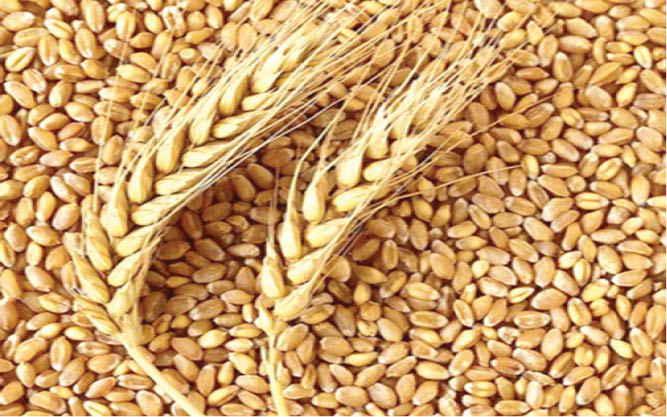Why wheat farmers are having difficult time
Expert suggests way out Wheat is the only grain that is yet to record significant progress since 2011, with many farmers now going out of production. Despite being high in demand, successive administrations in Nigeria failed to improve its production, prompting some farmers to call it “political crop” because they believe its neglect is political; […]

- Expert suggests way out
Wheat is the only grain that is yet to record significant progress since 2011, with many farmers now going out of production.
Despite being high in demand, successive administrations in Nigeria failed to improve its production, prompting some farmers to call it “political crop” because they believe its neglect is political; not economical.
Statistics from World-Grain show that in 2017 Nigerian wheat was valued at $15.5m, up from $13m in 2016. The figure increased to $16m in 2018 and a further increase in production to the value of $16.3m.
World-Grain said despite the significant figures, “The national wheat production capacity is a drop in the ocean compared to the Nigerian market demand that was valued at $1.2bn in 2016 and $1.5bn in 2017, with estimates putting the 2018 and 2019 requirements at $1.65bn and $1.7bn respectively.”
‘Getting quality seeds is a challenge’
The National President of the Wheat Farmers Association of Nigeria (WFAN), Alhaji Salim Mohammed, said lack of quality seeds had been the major challenge of the crop in Nigeria.
In an interview with Daily Trust, Alhaji Salim said, “One of our challenges is getting quality seeds every two years. Wheat is an open-pollinated crop, the maximum you can do with a particular seed is four years or thereabout, so if the government can finance the research institutes to come up with new varieties every two years, that will sustain production and keep the farmers in business.”
A seeds expert with the National Agricultural Seeds Council (NASC), who does not want to be mentioned because he is not authorised to speak for the council, explained some of the factors responsible.
The expert said, “When you look at variety development for wheat; we don’t have much achievement in that area. Most of the varieties we are using now were introduced from outside the country; perhaps from Sudan or Niger.
“There is no serious wheat development effort in the country and government is not also doing much to fund wheat research. So if we are not funding research, then you don’t expect quality seeds at the end of the chain. So that is one reason why farmers are complaining.”
According to him, there are very few seeds companies willing to go into wheat production, adding that some were encouraged doing wheat production under the Anchor Borrower Programme (ABP) but that the wheat was not procured from them for some reasons.
The regulation in Nigeria allows for importation through the appropriate channel. However, commercial importation is what the council does not encourage, such as bringing hundreds of tonnes of seeds.
Hence the expert said, “If there is a variety that is doing well and is suitable for our environment, bring it into the country through the normal channel, write to us, we will give approval to bring it in and relate with the mandate research institutes to conduct evaluation trials and release the material to be produced locally to get the quantity we need.”
Daily Trust reports that it is not only the farmers that complain about poor seeds, bakers too complain about the quality of flour from Nigerian wheat varieties.
Available information at Lake Chad Research Institute’s website, an institute known for wheat seed development, indicated that the institute last released two new wheat varieties that can yield up to six tonnes per hectare in December 2014 in addition to other five varieties earlier released.
The institute said on their website that the “varieties would be cropped in some other states in the country, as they are suitable for both wet and dry seasons farming.
It says that places like Mambilla Plateau in Taraba, Obudu in Cross River, Jos in Plateau states would be used for growing rain-fed wheat
On the other hand “Kano, Jigawa, Bauchi, Borno, Zamfara, Kebbi, Plateau, Sokoto, Gombe, Yobe, Adamawa and Katsina would be host to irrigated wheat farms.
